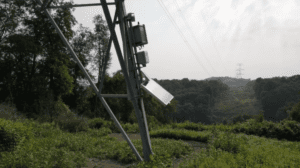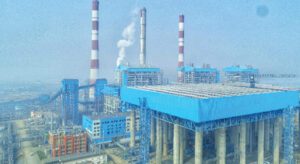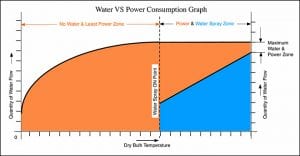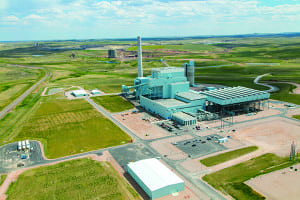air cooled condenser
-
News and Notes
HALEU Fuel, Grid, and WTE Cooling System Projects Featured in Power News and Notes (Aug. 30, 2023)
A number of companies with ties to the power industry revealed new projects and other interesting developments this week. The following are some the more noteworthy announcements that POWER has been monitoring. BWXT to Manufacture HALEU Feedstock for Advanced Reactors BWX Technologies Inc. announced on Aug. 30 that it had entered into a contract to […]
-
Coal
India Commissions First Supercritical Coal Plant Equipped with Air-Cooled Condenser
NTPC, India’s largest energy conglomerate and its largest coal generator, in March commissioned the country’s first supercritical coal-fired plant equipped with an air-cooled condenser (ACC). The effort
-
Water
How Thermal Power Plants Can Save 80% of Their Water
An adiabatic cooling tower system can save great amounts of water at power plants compared to typical wet-type cooling towers. While there are challenges to implementation, understanding how these systems work
-
Water
Understanding Amine Chemistry in Combined Cycle Power Plants
Many combined cycle power plants have established a pH guideline between 9.6 and 10.0 to minimize corrosion in heat recovery steam generators and condensers. Neutralizing amines are used to achieve these pH
-
Legal & Regulatory
Dry Fork: A Model of Modern U.S. Coal Power
Dry Fork Station began commercial operation as a swath of older, less-efficient U.S. coal plants contemplated retirement amid a flood of environmental rules. Designed with foresight, this quintessential modern
-
Water
Air-cooled condensers eliminate plant water use
River or ocean water has been the mainstay for condensing turbine exhaust steam since the first steam turbine began generating electricity. A primary challenge facing today’s plant developers, especially in drought-prone regions, is incorporating processes that reduce plant water use and consumption. One solution is to shed the conventional mindset that once-through cooling is the only option and adopt dry cooling technologies that reduce plant water use from a flood to a few sips.






